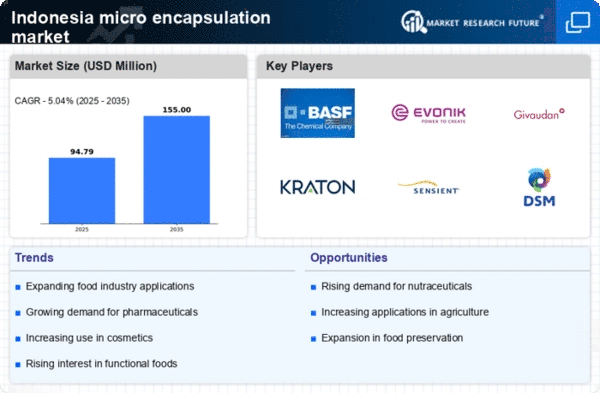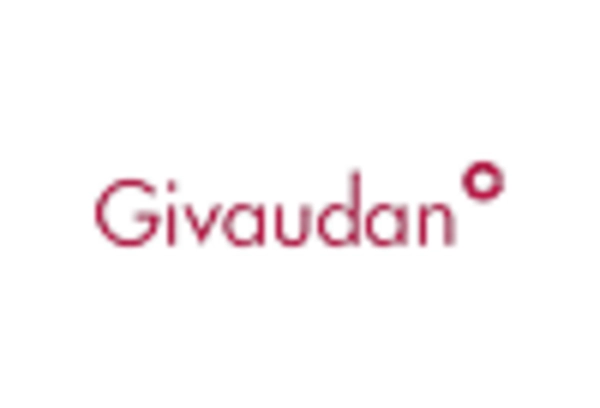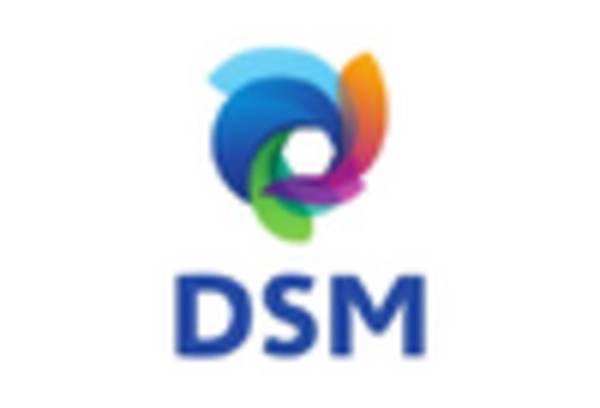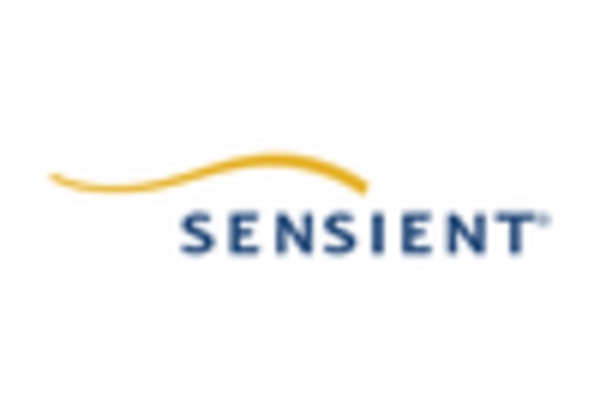Expansion of Nutraceuticals
The growing nutraceuticals industry in Indonesia is significantly impacting the micro encapsulation market. As health-conscious consumers seek dietary supplements that provide health benefits, the demand for encapsulated nutrients is on the rise. Micro encapsulation technology allows for the protection of sensitive ingredients, ensuring their stability and bioavailability. This is particularly relevant in the nutraceutical sector, where the market is expected to reach $1 billion by 2026. The ability to deliver active ingredients in a controlled manner enhances the appeal of these products, thereby driving growth in the micro encapsulation market. Furthermore, the increasing prevalence of lifestyle-related diseases is prompting consumers to invest in health supplements, further boosting the demand for encapsulated formulations.
Increasing Consumer Awareness
The micro encapsulation market in Indonesia is experiencing growth due to increasing consumer awareness regarding product quality and safety. As consumers become more informed about the benefits of encapsulated products, such as enhanced flavor retention and extended shelf life, demand is likely to rise. This trend is particularly evident in the food and beverage sector, where encapsulated ingredients are perceived to offer superior quality. The market was projected to grow at a CAGR of approximately 8% over the next five years, driven by this heightened awareness. Additionally, consumers are increasingly seeking products that utilize advanced technologies, which further propels the micro encapsulation market. Companies that effectively communicate the advantages of their encapsulated products may find themselves at a competitive advantage in this evolving landscape.
Rising Demand for Functional Foods
The demand for functional foods in Indonesia is driving the micro encapsulation market. As consumers become more health-conscious, they are increasingly seeking foods that offer additional health benefits beyond basic nutrition. Micro encapsulation technology enables the incorporation of bioactive compounds into food products, enhancing their functional properties. This trend is reflected in the growing market for fortified foods, which is projected to reach $500 million by 2025. The ability to deliver nutrients in a stable and palatable form is crucial for consumer acceptance, making micro encapsulation an attractive solution for food manufacturers. As the trend towards healthier eating continues, the micro encapsulation market is likely to expand, providing opportunities for innovation and product development.
Regulatory Support for Innovative Solutions
Regulatory bodies in Indonesia are increasingly supporting innovative solutions in the food and pharmaceutical sectors, which is beneficial for the micro encapsulation market. The government is promoting the use of advanced technologies to enhance product safety and efficacy. This regulatory environment encourages manufacturers to adopt micro encapsulation techniques, as they align with safety standards and quality assurance measures. As a result, companies are likely to invest in research and development to create new encapsulated products that meet regulatory requirements. This trend not only fosters innovation but also enhances consumer trust in encapsulated products, potentially leading to increased market penetration. The micro encapsulation market is expected to benefit from these supportive policies, which may facilitate growth in various applications.
Technological Advancements in Manufacturing
Technological advancements in manufacturing processes are significantly influencing the micro encapsulation market in Indonesia. Innovations in encapsulation techniques, such as spray drying and coacervation, are enhancing the efficiency and effectiveness of microencapsulation. These advancements allow for better control over the release of active ingredients, improving product performance. As manufacturers adopt these new technologies, they can produce higher-quality encapsulated products that meet consumer demands. The market is expected to see a surge in investment in these advanced manufacturing technologies, which could lead to a more competitive landscape. Furthermore, the integration of automation and digitalization in production processes may streamline operations, reduce costs, and ultimately benefit the micro encapsulation market.
















